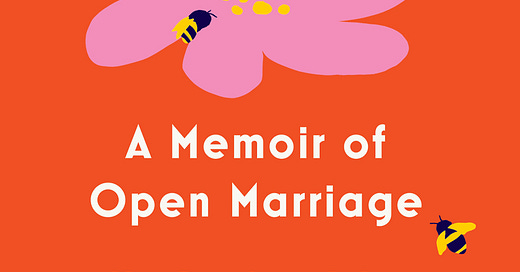When I was asked to narrate my own audiobook for More, I readily agreed for several reasons. The first of these is that I love microphones (my husband confirms this) and will make a toast at any wedding where a live mic is left unattended. Second, I’m a bit of a control freak (my husband disputes the qualifier “a bit”), and the idea of a single syllable being emphasized without my consent made me break out in hives. Third, although I’d read my book aloud in sections many, many times—thanks, Dad, for teaching me this key to writing—the opportunity to read my book from start to finish seemed like a great way to review the pseudonyms I’d chosen for various friends and partners.
So when people asked if I was nervous about the recording sessions, I pooh-poohed the very notion. I was excited. I was ready. I was eager.
I was naïve.
There were a couple of factors I’d failed to think about, factors which would have made me very nervous indeed. This may in fact be one of my super-powers, the ability to get so enthusiastic that my rose-colored glasses take up permanent residency on my face. (My husband nods vigorously in agreement.)
The first thing I hadn’t considered was that I would not be reading into a void. There would be other people in the room. One of them—my audiobook director—didn’t pose any issues for me. She was a woman, for one, and within my age decile. She was extroverted and irreverent and seemed to appreciate my sense of humor. In other words, she was my ideal reader, the kind of person I had in mind when I wrote More. Easy-peasy. But then there was the 25-year-old male audio engineer. It was his job to notify me when I needed to re-read a section: for example, when my stomach growled in the middle of a sex scene. I heard his voice through my headset, saying things like, “There was a little noise on nipple. Let’s take it again from erection.” Burying my mortification as deep as possible, I soldiered on.
I also didn’t anticipate the intensity of the experience, the feelings that would arise as a difficult decade of my life was compressed into three 6-hour sessions. Writing More had been a challenge. I started over more than once, ultimately changing to a present-tense voice so I could embody my experiences more fully. Over the course of three years, I had visited and re-visited scenes, cut and added and cut again, listened to music to bring back memories I’d rather forget, and reviewed notes with my therapist. I often felt emotionally sapped at the end of a writing day. I thought I was done. I believed that my emotions were fully processed, my lessons learned, my shame purged. But reading my work aloud—reading my life aloud—had brought it all back. Again.
At the end of that third day, I was drained and relieved to be done. As I soothed my throat with tea and applied balm to my dry lips, I felt a healthy respect for professional audiobook narrators. But I was also thrilled that I’d been allowed to do this, to give More the voice I heard in my head as I wrote it. I felt satisfied not only with the reading I’d done, but with the story I’d told. Cringey but funny. Complicated but thrilling. Heart-breaking but joyful. Above all, it felt true.
After I packed up my things and bid my goodbyes, my young friend the audio engineer looked me in the eye. “You know, I’m not sure I would have read your book if I hadn’t worked the recording sessions,” he admitted. “But I really liked it.” And then, with an earnest expression I will long cherish, he lowered his voice: “I learned a lot.”
You can find a sample of the Audiobook version of MORE: A Memoir of Open Marriage, read by the author, here.



